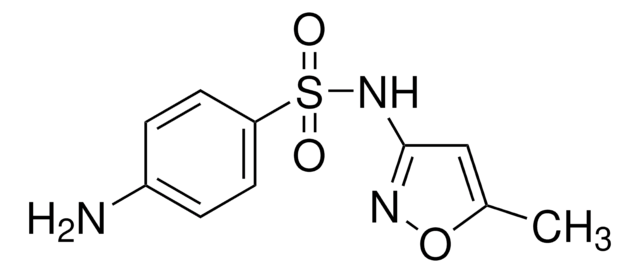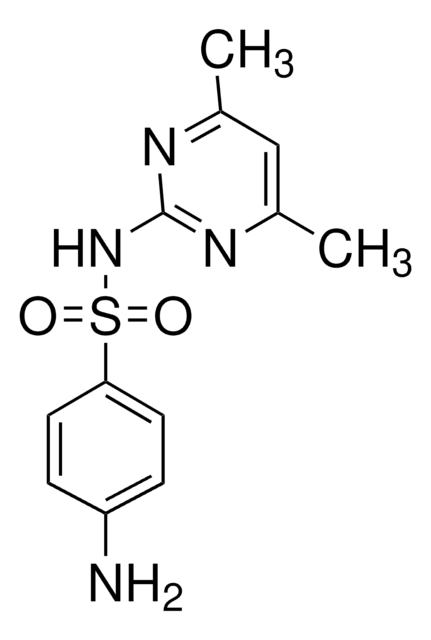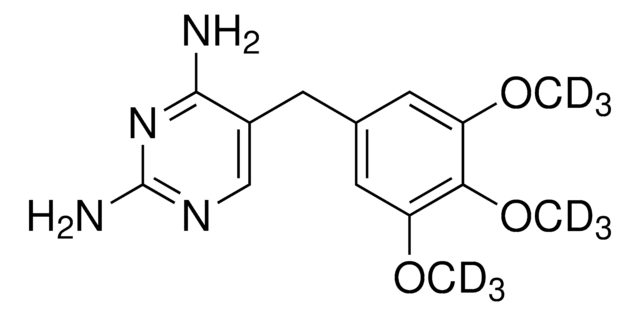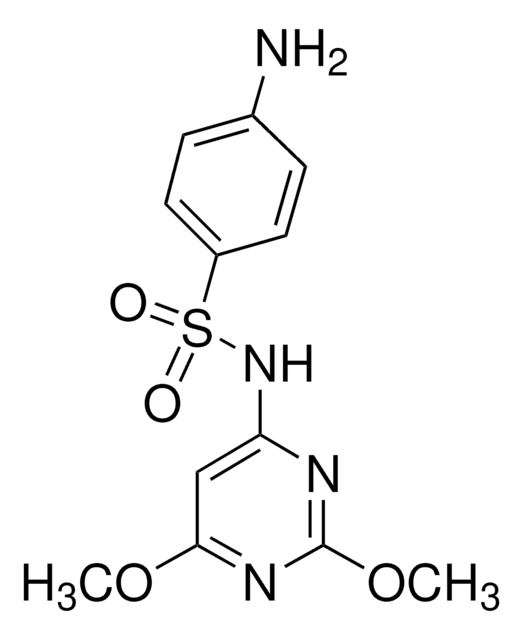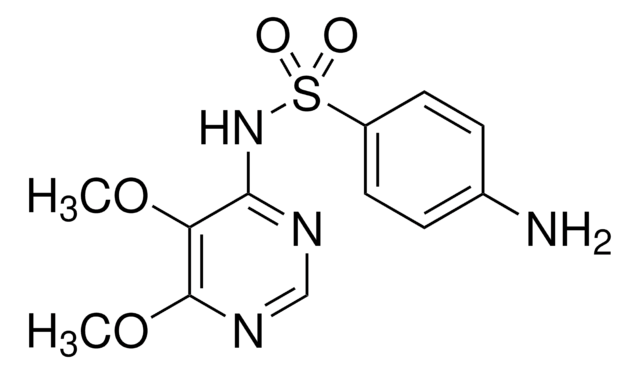46984
Trimethoprim
VETRANAL®, analytical standard
Synonym(s):
2,4-Diamino-5-(3,4,5-trimethoxybenzyl)pyrimidine, NSC 106568
About This Item
Recommended Products
grade
analytical standard
Quality Level
agency
EPA 1694
product line
VETRANAL®
shelf life
limited shelf life, expiry date on the label
technique(s)
HPLC: suitable
gas chromatography (GC): suitable
antibiotic activity spectrum
Gram-negative bacteria
Gram-positive bacteria
mycoplasma
application(s)
clinical testing
format
neat
mode of action
DNA synthesis | interferes
enzyme | inhibits
storage temp.
2-8°C
SMILES string
COc1cc(Cc2cnc(N)nc2N)cc(OC)c1OC
InChI
1S/C14H18N4O3/c1-19-10-5-8(6-11(20-2)12(10)21-3)4-9-7-17-14(16)18-13(9)15/h5-7H,4H2,1-3H3,(H4,15,16,17,18)
InChI key
IEDVJHCEMCRBQM-UHFFFAOYSA-N
Looking for similar products? Visit Product Comparison Guide
General description
Application
Recommended products
Legal Information
signalword
Warning
hcodes
Hazard Classifications
Acute Tox. 4 Oral - Repr. 2
Storage Class
11 - Combustible Solids
wgk_germany
WGK 3
flash_point_f
Not applicable
flash_point_c
Not applicable
ppe
Eyeshields, Gloves, type N95 (US)
Choose from one of the most recent versions:
Already Own This Product?
Find documentation for the products that you have recently purchased in the Document Library.
Customers Also Viewed
Our team of scientists has experience in all areas of research including Life Science, Material Science, Chemical Synthesis, Chromatography, Analytical and many others.
Contact Technical Service
